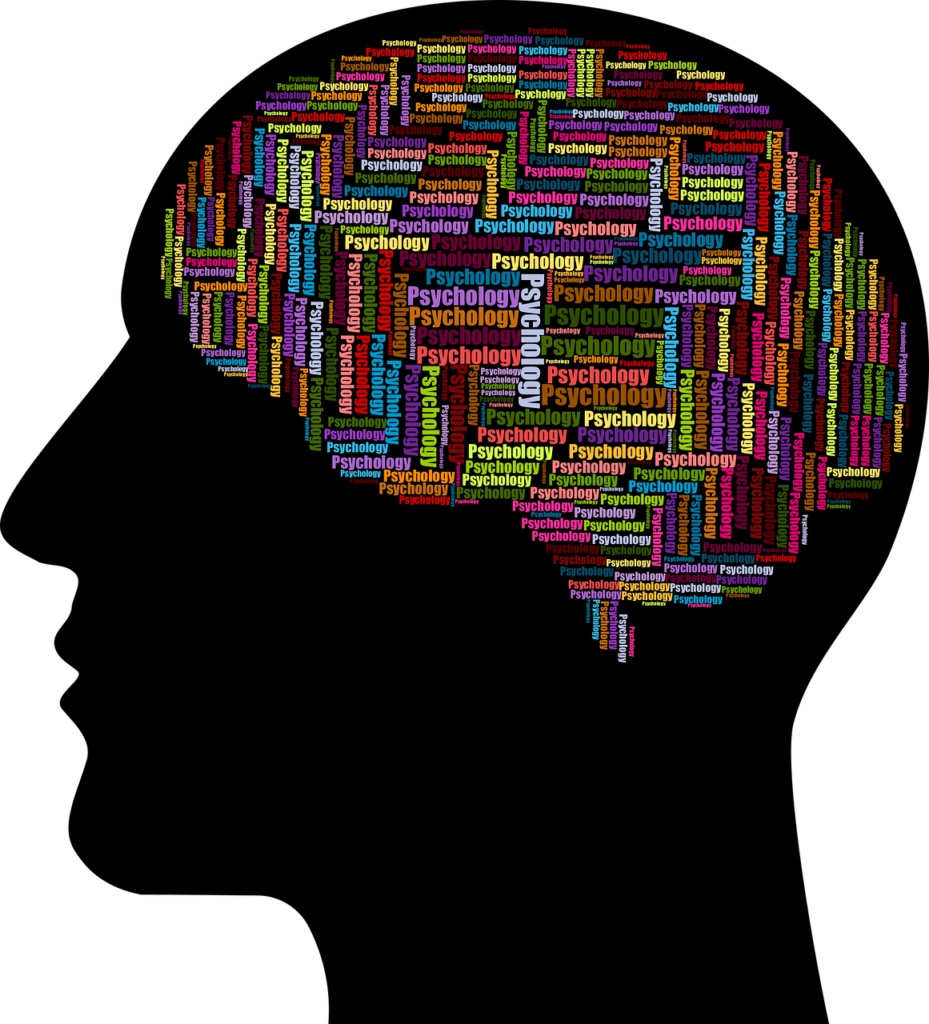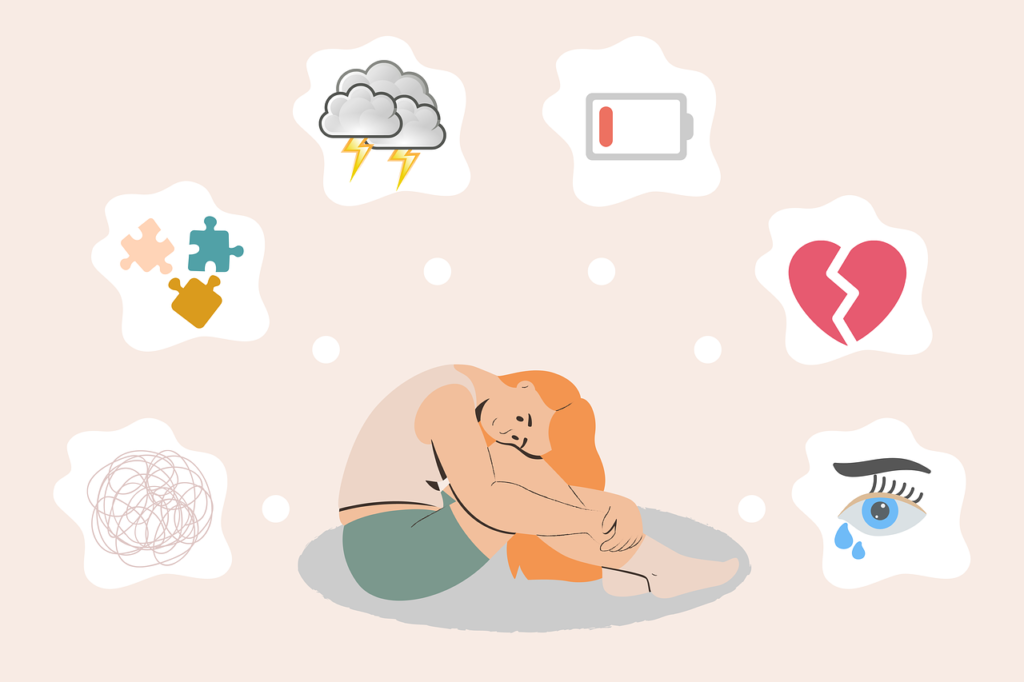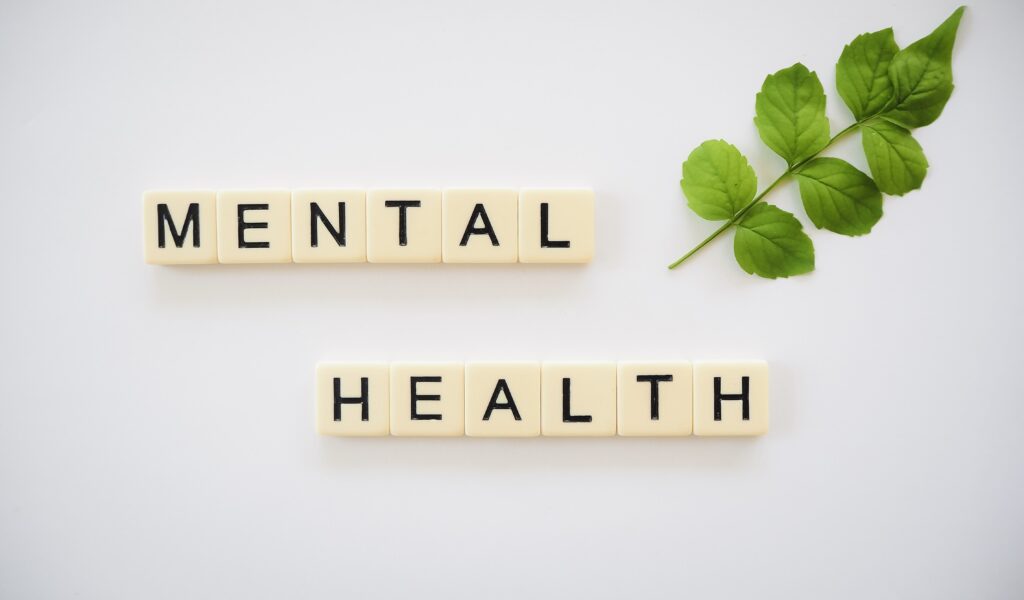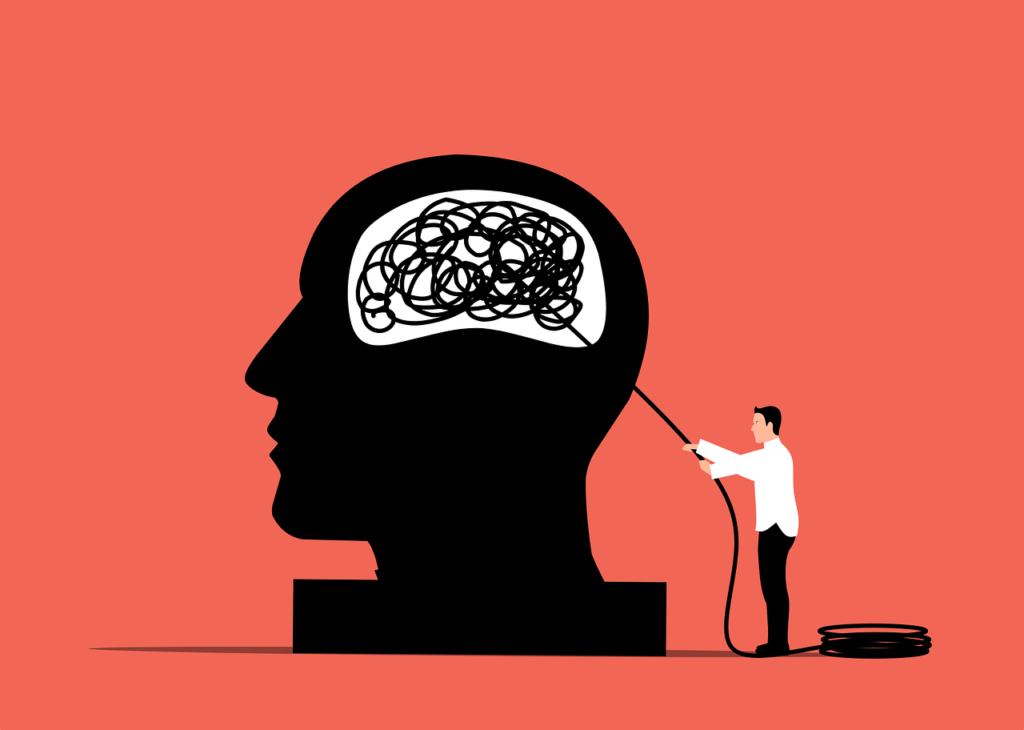
Mental disorders, also known as mental illnesses or psychiatric disorders, are conditions that affect an individual’s thoughts, emotions, and behaviors, causing significant distress or impairment in personal functioning. These disorders can manifest as single episodes, persistent symptoms, or relapsing-remitting patterns, impacting various aspects of a person’s life. In this comprehensive guide, we’ll explore the different types of mental disorders, their causes, symptoms, and available treatment options.

Types of Mental Disorders:
There are numerous types of mental disorders, each with its own set of signs and symptoms. Some common mental disorders include:
1. Depression:
Characterized by persistent feelings of sadness, hopelessness, and loss of interest in activities once enjoyed.
2. Anxiety Disorders:
Including generalized anxiety disorder, panic disorder, and social anxiety disorder, marked by excessive worry, fear, or anxiety that interferes with daily functioning.
3. Bipolar Disorder:
Involving alternating periods of mania (elevated mood) and depression, with fluctuations in energy levels and mood.
4. Schizophrenia:
Characterized by disturbances in thinking, perception, emotions, and behavior, often resulting in hallucinations or delusions.
5. Attention Deficit Hyperactivity Disorder (ADHD):
A neurodevelopmental disorder characterized by inattention, hyperactivity, and impulsivity, often diagnosed in childhood.

Causes of Mental Disorders:
The causes of mental disorders are often complex and multifaceted, involving a combination of genetic, biological, environmental, and psychological factors. Some potential causes and risk factors include:
1. Genetics:
Family history of mental illness can increase the risk of developing a mental disorder.
2. Brain Chemistry:
Imbalances in neurotransmitters, such as serotonin and dopamine, may contribute to the development of certain mental disorders.
3. Environmental Stressors:
Traumatic events, chronic stress, abuse, or neglect can trigger or exacerbate mental health symptoms.
4. Substance Abuse:
Drug or alcohol abuse can worsen symptoms of existing mental disorders or trigger the onset of new ones.
5. Life Events:
Major life transitions, such as divorce, loss of a loved one, or job loss, can impact mental health and contribute to the development of mental disorders.

Symptoms of Mental Disorders:
Symptoms of mental disorders vary widely depending on the type of disorder and individual factors. Some common symptoms include:
- Changes in mood, such as persistent sadness, irritability, or mood swings.
- Difficulty concentrating or making decisions.
- Changes in sleep patterns, appetite, or energy levels.
- Withdrawal from social activities or relationships.
- Hallucinations, delusions, or paranoia.
- Excessive worry, fear, or panic attacks.

Treatment Options:
Treatment for mental disorders typically involves a combination of psychotherapy, medication, lifestyle changes, and support services. Some common treatment options include:
1. Psychotherapy:
Also known as talk therapy, psychotherapy involves working with a trained therapist to explore thoughts, feelings, and behaviors and develop coping strategies.
2. Medication:
Psychiatric medications, such as antidepressants, mood stabilizers, or antipsychotics, may be prescribed to manage symptoms of certain mental disorders.
3. Lifestyle Changes:
Making healthy lifestyle changes, such as regular exercise, healthy eating, adequate sleep, and stress management, can support overall mental health and well-being.
4. Support Services:
Peer support groups, community organizations, and mental health hotlines can provide valuable support and resources for individuals living with mental disorders.
5. Inpatient or Outpatient Treatment:
In severe cases, individuals may require hospitalization or intensive outpatient treatment to stabilize symptoms and receive specialized care.

Conclusion: Mental disorders are common and complex conditions that can significantly impact an individual’s quality of life. By understanding the causes, symptoms, and treatment options for mental disorders, individuals can seek appropriate help and support to manage their symptoms and improve their overall well-being. It’s important to remember that mental health is just as important as physical health, and seeking help is a sign of strength, not weakness. With the right support and treatment, individuals living with mental disorders can lead fulfilling and productive lives.